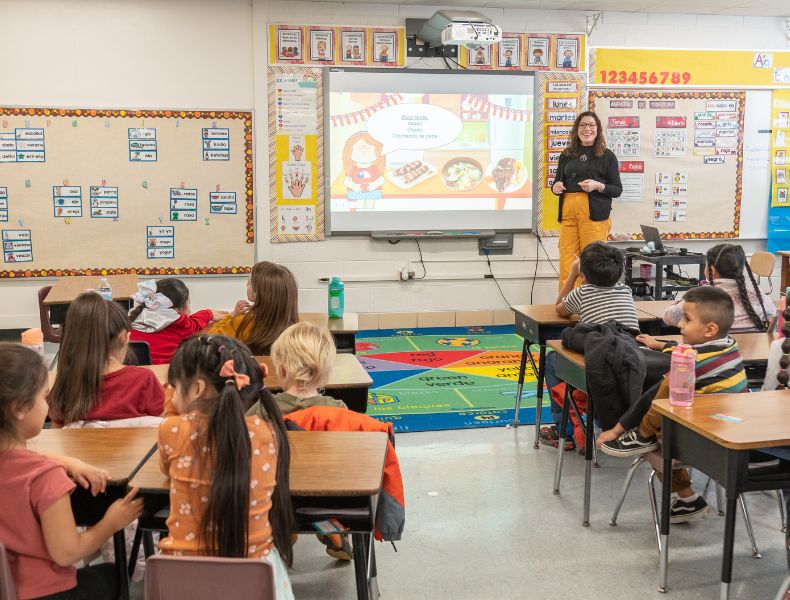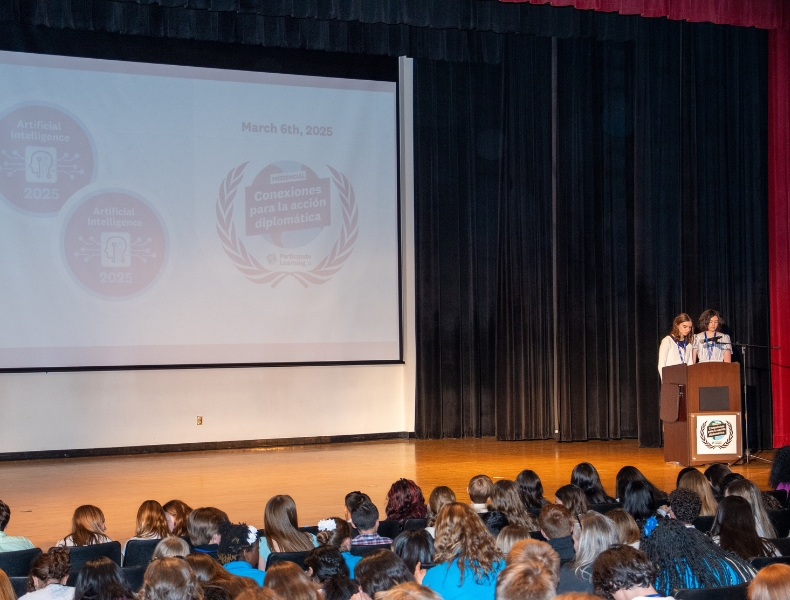Imagine an 18-year-old who has never dribbled a basketball or even shown interest in the sport. Now imagine taking that same 18-year-old, placing him on the court, and expecting him to be a highly-skilled athlete ready to go up against opponents who started playing at a young age, developed a love for the game, and spent hours upon hours devoted to training and honing their skills.
We wouldn’t do this; we wouldn’t hold these high expectations for this 18-year-old because we would be setting him up for failure. So why do we do this for students when it comes to global exposure, experiences, and education?
As an advocate for global education, the powerful analogy above has stayed with me since 2015 when I first heard Homa Sabet Tavangar speak at the Global Education Forum in Philadelphia. Much like our founder Dr. J. Fred Young’s motivation behind starting Participate Learning (formerly VIF) in 1987, Homa questioned why we wait until high school or university to offer global electives to students and why we don’t begin introducing children to a world beyond their own community at a much younger age.
She shared her belief that our future community members, leaders, thinkers, and doers are being set up for failure when we do not provide early opportunities for them to learn about the world with the world, embrace differences, and develop cultural and global awareness. As part of a company that strives to empower educators and prepare students for life in a globally connected and competitive world, it is no surprise that I continue to share Homa’s words in my conversations about global education and our global leaders program.
Our Global Leaders Program
Participate Learning’s global leaders program is designed to ensure that all students experience and understand the world. By infusing global learning opportunities across grade levels, subjects, and school-wide activities throughout the K-12 continuum, we help students develop the skills necessary to not only live in our increasingly interconnected world but to also lead and thrive as global leaders.
For many, the term “global education” conjures up the five Fs – food, festivals, famous people, fashion, and flags – and educators envision a scenario where they are shortening literacy or math lessons in an effort to find time for a fun global activity. Our approach to global education is on a deeper, more intentional level, where we focus on integrating global content into the curriculum in effective ways that enhance both teaching and learning.
Across North Carolina and Virginia, our partner global leaders programs are bringing the world to students each and every day, and these are just a few of the benefits they see as they implement the program:
- Global students are competitive in the worldwide workforce. For years, we have heard about the positive impacts of dual language programs and the high demand for bilingual employees in today’s competitive job market. However, a recent Education Week article states that employers are now placing even more emphasis on global and cultural awareness, critical thinking skills, and collaboration.
- Global programs create global leaders. In our constantly changing, interconnected world, schools are challenged with preparing students for their roles as global leaders. Through a focus on ten global competencies, Participate Learning’s global leaders programs is designed to ensure that all students gain the attitudes, skills, and knowledge they need to better understand, embrace, and interact in the world.
- Global students learn what community means. We truly believe that local is global and global is local. Designing and engaging in action-based projects that combine knowledge building with meaningful community outreach and service drives learning, encourages reflection, and builds civic responsibility. In our partner global leaders programs, teachers and students think globally and act locally as they participate in a variety of service learning projects with local, national, and international impact.
- Global students learn to embrace other cultures. Intercultural understanding training and practices play important parts in all Participate Learning global leaders program. The idea of embracing other cultures begins with teaching students how to recognize, appreciate, and take pride in their own cultures, while encouraging them to appreciate both the similarities and differences of other cultures represented in their classrooms and communities, and around the world.
For a glimpse into one of our partner global leaders programs, I invite you to spend the next two minutes meeting the staff and students at Fred L. Wilson Elementary – a school where the administration and teachers are committed to teaching their students to live in a big world, even though they live in a small town.
Interested in learning more about Participate Learning’s global leaders program? Contact us at [email protected].




